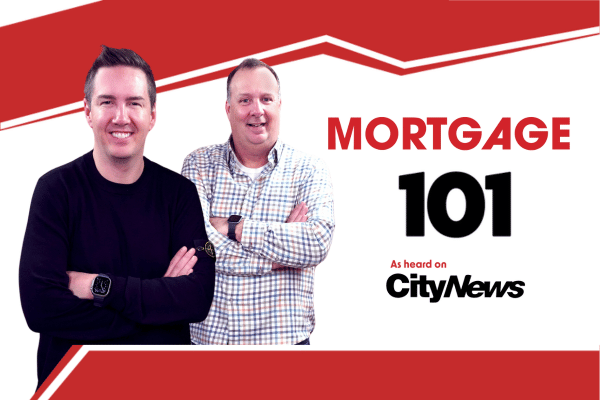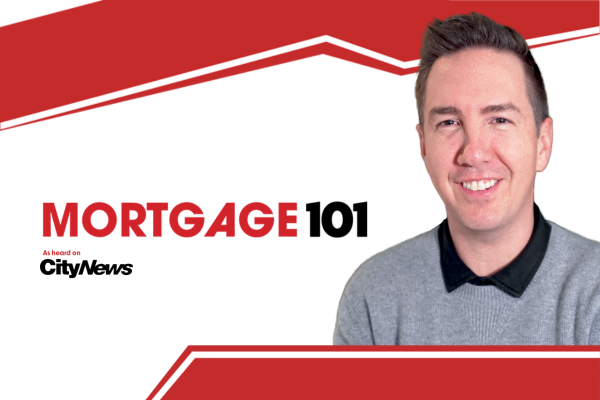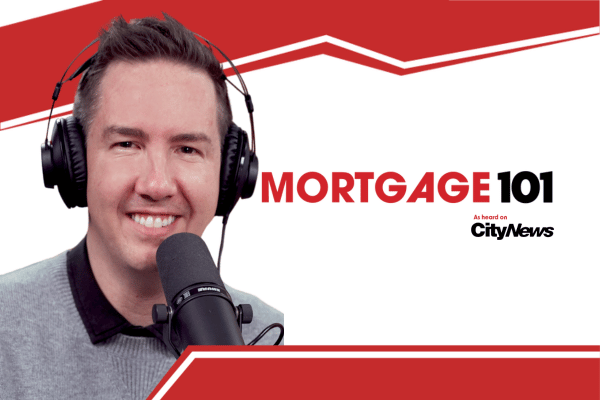Clinton Wilkins and Todd Veinotte are back this Spring to discuss the latest budget updates, including changes in mortgages and housing incentives. Plus, a debate between Beyonce and Dolly Parton country renditions and how the new housing incentives for new builds may expand the construction industry here in Nova Scotia!
Mortgage 101 – Refinance and managing debt | January 2022 Part 2
In this episode of Mortgage 101 with Clinton Wilkins and Todd Veinotte, as heard on CityNews 95.7, the guys talk about how a refinance can help you manage debt. Watch, read or listen to learn how you can refinance to leverage home equity now that real estate values are up and about managing your credit cards.
Mortgage 101 with Clinton Wilkins & Todd Veinotte: Refinance and managing debt | January 2022 Part 2
Don’t feel like watching the video? Check out the transcript below.
Transcript:
Overspent during the holidays?
Todd Veinotte: [00:00:00:02] Merry Debtmas, so unfortunately, January, the bills are coming in and people have that Christmas hangover and what might have seemed like a good idea, it doesn’t seem necessarily like a good idea right now, right?
Clinton Wilkins: [00:00:12:02] Maybe it was a highway to hell.
Todd Veinotte: [00:00:14:09] There you go.
Clinton Wilkins: [00:00:15:05] I’ll throw it a little music.
Todd Veinotte: [00:00:18:26] A bit of a groaner.
Clinton Wilkins: [00:00:20:02] Little greener, I guess. Like da da duh.
Todd Veinotte: [00:00:21:27] Yeah, that’s right.
Clinton Wilkins: [00:00:23:02] But I mean, you know, people, it’s not just the holidays, I don’t think, that really, you know, maybe puts people in a bad financial position. Sometimes that might be the straw that breaks the camel’s back. In some sense, I guess.
How often do clients have debt problems?
Todd Veinotte: [00:00:36:22] So how often do you see people in front of you, a client and their debt is a is a problem? How often does that happen?
Clinton Wilkins: [00:00:45:00] I think that, you know, sometimes we see people who are kind of like ‘robbing Peter to pay Paul.’ I guess that’s kind of another saying, I’ll throw out there. That they’re kind of borrowing to pay the debt, and that’s not a place you ever want to be. You know, I think credit card sometimes get misused.
Really, the goal with a credit card is you should be using it and paying it off. No one really should be paying interest on a credit card because, you know, credit card interest is very high. And in a lot of cases, the interest on a credit card is like 20 per cent. You know, I think in terms of maybe a slightly longer borrowing vehicle like a line of credit can make a lot of sense.
You know, I think sometimes that interest rate is usually at least half of what it would be at a credit card, sometimes it’s lower depending on like what type of unsecured credit, unsecured line of credit you might have. But again, it’s not a forever plan. I know people who have money on lines of credit and credit cards who have had money on there for years, and basically they just tread water. You know, they’re making the minimum payments. They have great credit. But you know, they’re not able to pay down the principal on these accounts. And oftentimes it has to do with the interest carrying costs.
And a lot of times, the payments that they’re making sometimes are just interest. Or maybe they’ll make the payment that’s inclusive of the interest and then they draw the available principle back off. Oftentimes when you are maxed out on your revolving debt, it brings your credit score down. You could still make all your payments and never, ever miss a payment. But if you’re maxed out, that will drive your score down.
Todd Veinotte: [00:02:20:22] And it should because it’s a strong indicator of the problem.
Merry Debtmas can be merry or not so merry
Clinton Wilkins: [00:02:24:04] And you’re in a risky position, right? So one little thing goes wrong and then you can’t make that minimum payment, obviously, then you may be in a default position. So, you know, really through Merry Debtmas, there’s really two issues that we talk about, Todd.
For some people, they want to get in debt. They want to buy their first home. They want to buy a new home. So that’s good debt, right? So Merry Debtmas to you if you’re buying a new home. We’re helping a lot of those borrowers obviously arrange mortgage financing every single day.
But then there’s Merry Debtmas that might not be so merry, but maybe we can turn maybe a situation that’s not so great into a good situation by leveraging the equity in the existing home. So when we talk about refinance, it’s for existing home owners that have some equity in their property. You can refinance up to 80 per cent of the market value.
And from that equity, you know, you have to pay out your existing mortgage or secured line of credit or combination, or whatever you have. So you need to pay out the existing debt with the new credit facility. But then at that point, you can also use that equity to pay down that unsecured debt that might be a bit of a problem.
The one thing that’s really great about these house prices that have increased, a lot of people have a lot more equity in their property, Todd.
Use a refinance to leverage equity now that home prices are up
Clinton Wilkins: [00:03:38:14] Right? And it’s enabling people to leverage that equity in their home to potentially put them in a better position. Now, you know, people are doing refinance, obviously, to clean up some of this unsecured debt, Todd.
Oftentimes when we when we do these types of transactions, we have a conversation with the borrower and we look at the remaining amortisation. And we look and see kind of what they’re paying on that unsecured debt. And oftentimes we can reduce the amount of years that the mortgage is amortised over.
So imagine if you’re paying, you know, $1,000 a month on a mortgage and $1,000 a month on unsecured debt. Imagine even if you make your mortgage payment $1,500 a month, how much quicker it will pay everything off. And mortgage debt is really the best debt. It’s typically at the lowest interest rate of, you know, any credit facility that you can get.
So, you know, it’s a great way to use your home, maybe not so much as an ATM, but as an asset to make sure your debt is in the best vehicle to really help you kind of, you know, obtain a more healthy financial household, we’ll call it.
Don’t be a “serial refinanciner”
Todd Veinotte: [00:04:46:28] How often do you see people do that? They go through the process, they clean everything up and then they pile on debt again in three years in their back?
Clinton Wilkins: [00:04:53:05] It happens. It happens. You know what I mean? Like, I think that there are kind of “serial refinanciners.” But eventually, you know, you’ll get to a point where you just can’t refinance anymore, right? You will basically have leveraged everything that you can leverage. And if the home prices don’t go up and you don’t pay that debt down, that can be a problem. That’s why a lot of these times when we do do a refinance, we shorten the amortization. You know, we help force the borrower to, you know, pay down their debt faster.
I think especially for people that have refinanced a couple of times, you know, I think it’s sometimes we’ll have the conversation to shut down some of these revolving accounts. Like, why do you need to have three credit cards? Why do you need to have three lines of credit, for example. Like, you probably don’t? You probably need one credit card, probably one line of credit.
Advice for your credit cards
Todd Veinotte: [00:05:44:10] If they’ve maxed one of those out, then that’s, if nothing’s maxed out, you need one. That’s it.
Clinton Wilkins: [00:05:50:18] Yeah. I think you definitely need one credit card for sure, and I would never, ever recommend somebody not having any right. I would never recommend that. I think everybody needs at least one credit card. And I think honestly, like a limit of $5,000 is sufficient for most people.
Unless you are self-employed and you’re using that credit card and paying it off like every day, week, month, whatever. Most people don’t need a credit card of $5,000.
And the one thing that I sometimes see, like I see people that have these credit cards and the like $30,000 and they’re maxed out. I think to myself, I’m like, Why? How did this even happen? And, you know, I think we’ve all had, you know, gone through challenges and, you know, none of us are absolved of that, you know what I mean? Like, I’ve definitely had financial hardship in the past. I’m sure, Todd, you’ve had financial hardship in the past, but I think you need to like, learn from those mistakes, right? And you don’t want to do it again.
Learning from your mistakes
And I think that, you know, some of the coaching that we do with people, we can kind of set them up for success. And, you know, we like doing an annual review with our clients, and sometimes it’s just a little bit of tough love. And, you know, even if there’s clients that we look at a transaction and, you know, it’s not doable for whatever reason, we like to give them a plan.
And then, you know, I would say nine times out of 10, people follow our direction. And then they are in a place that they can, you know, get that transaction done that they want.
Todd Veinotte: [00:07:24:03] So it’s a whole new, it’s a brand new mortgage when you refi?
Clinton Wilkins: [00:07:28:02] Yeah, it’s a brand new mortgage. And I think there’s sometimes a misconception that you pay all the interest at the beginning of your mortgage. It’s all based on the amortisation, Todd, so it doesn’t matter if it’s a refinance or if it’s a purchase. It’s based on the numbers and what that amortisation is.
So you pay basically the interest that’s based on the amount of mortgage that you owe. So that’s why I think sometimes when they do do a refinance, looking at a shorter amortisation oftentimes can make a lot of sense and leverage kind of that lower interest rate of that mortgage debt to pay off the debt faster.
Todd Veinotte: [00:08:01:25] And it’s still much better than paying high credit card ratio debt.
Clinton Wilkins: [00:08:05:20] Oh my goodness, yes. It’s definitely always a better solution for sure. And, you know, even like in a refinance situation, you know, clients are looking at a rate of, in most cases, below three per cent.
I don’t know any unsecured credit facility that is, you know, at that type of rate, right? And some of these debts that we pay off for people are like staggering interest rates. So, you know, I think it’s about getting it cleaned up, making a plan. And then how can you forge forward with a clean financial health going forward.
See you in the next segment for more Merry Debtmas!
[00:08:40:20] What you want to talk in the next segment?Clinton Wilkins: [00:08:42:15] I’m sure where there’s more refinance things we might want to talk about. But maybe we want to talk about some credit. And I’d love to talk about first-time home buyers like, how can we get people into some good debt and how is that Merry Debtmas?
Todd Veinotte: [00:08:53:16] Ok, we’ll be right back, Mortgage 101.
If you have any questions, get in touch with us at Clinton Wilkins Mortgage Team! You can call us at (902) 482-2770 or contact us here.


